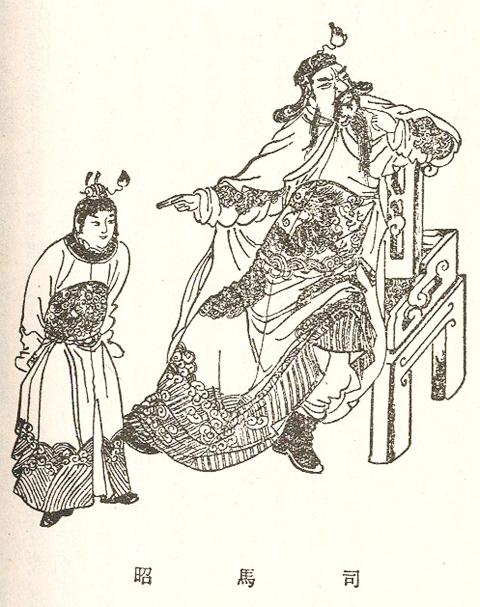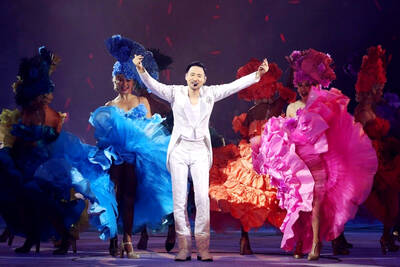Chinese Practice
司馬昭之心,路人皆知
(si1 ma3 zhao1 zhi1 xin1 lu4 ren2 jie1 zhi1)

照片:維基共享資源
Photo: Wikimedia Commons
Everyone knows what’s on Sima Zhao’s mind
佩德羅‧卡爾德隆‧德‧拉‧巴爾卡(西元一六○○~一六八一年),是西班牙文學黃金時期的劇作家及詩人。他被認為是西班牙最重要的劇作家之一,也是世界文學中公認最優秀的劇作家之一。德‧拉‧巴爾卡有一部名為《El Secreto a Voces》的喜劇,英文譯做「The Noisy Secret」 或「The Secret Spoken Aloud」。一七六九年,義大利劇作家卡洛‧戈齊將該劇翻譯成義大利文,並將其命名為「Il Pubblico Secreto」,意為「公開的秘密」(英文為「a public secret」或「an open secret」)。「an open secret」一語,十九世紀在英文中成為廣泛使用的說法,意指某些應該加以保密的事或資訊,實際上卻是有很多人知道,因此雖然叫做秘密,但對於保密是無濟於事的。因此,你可以說某位名人的出軌是個「open secret」:他們尚未正式承認緋聞,事情也還沒報導出來,但無論如何大家都心知肚明,至少在該行業或媒體圈內。然而,「an open secret」一語本身並沒有有負面的含義──那個「秘密」也有可能是件好事。
「司馬昭之心,路人皆知」這句話的字面意思是,「街上的每個人都知道司馬昭心裡在想什麼」),其意跟「an open secret」似乎相近,但其適用範圍較為限縮。
司馬昭(西元二一一~二六五年)是三國時期曹魏的軍事將領及政治家。大權在握的司馬家族覬覦王位,和曹魏皇帝之間有權力鬥爭。曹魏第四位皇帝曹髦在十幾歲時便登基為王。
曹髦和司馬昭聯手平定了叛亂後,作了〈潛龍詩〉。此役雖有助於改善曹髦的艱難處境,但由此詩中,我們或可一窺曹髦心中的無奈:
傷哉龍受困,不能越深淵。(可憐的龍被困住,無法跳出深淵。)
上不飛天漢,下不見於田。(牠無法飛上天,也無法降落到田野。)
蟠居於井底,鰍鱔舞其前。(可憐的龍落入深井,連泥鰍鯰魚都在他面前舞動。)
藏牙伏爪甲,嗟我亦同然。(牠把牙齒、爪子隱藏起來。我嘆息道,我也是這般消沉。)
《三國志.卷四.魏書.三少帝紀.高貴鄉公髦紀》記載,曹髦想要將司馬昭冊封為晉王,以遏制司馬昭明顯想要篡奪帝位的野心,但被司馬昭給拒絕了。曹髦悲憤喊道:「司馬昭之心,路人所知也。吾不能坐受廢辱,今日當與卿自出討之」(街上的每個人都知道司馬昭的意圖。我無法任憑他把我的帝位廢掉、忍受這種羞辱,我今天就要帶著官兵去討伐他)。曹髦說到做到──他全副武裝,率護衛軍去討伐司馬昭。在戰鬥中,曹髦被長矛當胸刺穿而死。曹髦無法賜與司馬昭爵位來收編他,但他絕望的話語「司馬昭之心,路人所知也」,卻賜給後人「司馬昭之心,路人皆知」這句話,有時簡化為「司馬昭之心」,用來指那些有明顯有野心要攫取權力的人。
(台北時報林俐凱譯)
他一直說沒有意願要角逐大位,但司馬昭之心,路人皆知──他其實已經布局很久了。
(He keeps saying that he has no intention of standing for high office, but everyone knows what he’s thinking: he’s been planning this for a long time.)
英文練習
an open secret
Pedro Calderon de la Barca (1600 – 1681), was a dramatist, poet and writer of the Spanish Golden Age. He is counted among Spain’s foremost dramatists, and is also regarded as one of the finest playwrights of world literature. One of de la Barca’s comedies was called El Secreto a Voces, variously translated into English as The Noisy Secret or The Secret Spoken Aloud. In 1769 Italian playwright Carlo Gozzi translated the play into Italian, giving it the name Il Pubblico Secreto, meaning “a public secret” or “an open secret.” The latter term, an open secret, came into general use in English during the 1800s, with the meaning of a fact or snippet of information that is supposed to be secret or confidential, but which in reality so many people know about that it’s futile to call it a secret at all. Thus, you could say that a certain celebrity’s infidelities are an open secret: their affairs have not been officially acknowledged or reported, but they are common knowledge anyway, at least within industry or media circles. The term doesn’t have to carry a negative connotation, however: the “secret” could just as well be a good thing.
In Chinese, the phrase 司馬昭之心,路人皆知, literally “Everyone in the streets knows what’s on Sima Zhao’s mind,” might appear to have a similar meaning, but it is used in a very specific way.
Sima Zhao (211— 265) was a military general and politician of the state of Cao Wei during the Three Kingdoms period. There was a power struggle between the Wei emperors and the powerful Sima clan. The fourth emperor, Cao Mao, ascended the throne while still in his teens. After a rebellion against Cao Mao and the Sima clan was crushed, Cao Mao wrote a poem entitled qianlong shi (Ode to the Hidden Dragon), which perhaps gives some insight into his feelings of helplessness despite his elevated status:
The desolate dragon is trapped; He cannot leap from the Depths;
He cannot rise to the Heavens; He cannot descend to the fields below.
The desolate dragon fell into the deep well, where even catfish dance before him;
He hides his teeth and talons and sighs; How like this dragon am I.
The gaogui xiang gongji (Annals of the Duke of Gaogui) in weishu (Book of Wei) in volume 4 of the sanguo zhi (Record of the Three Kingdoms) records how Cao Mao attempted to enfeoff Sima Zhao as King of Jin, to stem his obvious ambition to usurp the imperial throne, and how Sima Zhao had declined the offer. Frustrated, Cao Mao shouted out 司馬昭之心,路人所知也。吾不能坐受廢辱,今日當與卿自出討之 (Everyone knows of Sima Zhao’s intent. I can no longer sit by and accept this shame. Today I and my officials will go and deal with him.) And he did. Cao Mao armed himself and went, accompanied by his imperial guard, to kill Sima Zhao. He was killed himself, however, by a spear to the chest during the fighting. From his frustrated words 司馬昭之心,路人所知也 he bequeaths us the idiom 司馬昭之心,路人皆知, sometimes shortened to just 司馬昭之心, used when referring to someone with obvious ambition to secure power for themselves.
(Paul Cooper, Taipei Times)
You should perhaps try to be a little more discrete. It’s an open secret that you’re after the boss’ job.
(你好歹也低調一點,大家都知道你想坐老闆這個位置。)

Even as he grows older, Microsoft founder Bill Gates still fondly remembers the catalytic computer code he wrote 50 years ago that opened up a new frontier in technology. Although the code that Gates printed out on a teletype machine may look crude compared to what’s powering today’s artificial intelligence platforms, it played a critical role in creating Microsoft in April 1975 — a golden anniversary that the Redmond, Washington, company celebrated on April 4. Gates, 69, set the stage for that jubilee with a blog post reminiscing on how he and his old high school friend — the late Paul Allen

Australia’s strict immigration policies have long been criticized, particularly for how they treat people with disabilities. Having been residents of Australia for years, Scottish Laura Currie and her Italian partner, Dante Vendittelli, recently experienced the impact of these immigration policies. Their son Luca, born in Australia and diagnosed with cystic fibrosis, became the reason their residency application was denied due to the anticipated high healthcare costs. Had Luca been healthy, there would have been no objections to their permanent residency. This case not only highlights discrimination against disabled individuals, but also raises questions about fairness and inclusion within Australia’s immigration

A: After holding nine concerts in Kaohsiung and Taipei recently, “God of Songs” Jacky Cheung will stage three extra shows later this week. B: They’re compensation for the three shows he postponed last year due to illness. A: He also canceled three more shows in Guangzhou last month. His health is worrisome. B: When touring Guangzhou, he dedicated his hit “She Is Far Away” to late singer Khalil Fong. That’s so touching. A: Online music platform KKBOX has also launched a campaign to pay tribute to Fong. I can’t believe he died so young: he was only 41. A:

1. 為了在最短期間精通日文,他非常用功。 ˇ He is working very hard (in order) to master Japanese in the shortest possible time. χ He is working very hard for mastering Japanese in the shortest possible time. 註: 用 for + 動名詞表示目的,是不合習慣的,應改用不定詞。請看下列句子: 農夫們拿起了武器來保衛他們的村莊。 The farmers took up arms to defend their village. 為了改進工作,我們修改了部分計劃。 We made some changes in our plan (in order) to improve our work. for 作「為了」解,後面跟名詞則是通順的。例如: 我們為這個計畫拚命。 We are working hard for this project. 我們正在為下一代創造更幸福的生活。 We are building a happier life for our children. 2. 他很怕冷。 ˇ The cold bothers him. ˇ Cold weather bothers him. χ He is afraid of the cold. 註: 我們在英漢詞典或中學課本中所看到的英文字詞的中文解釋,和它的英文原義往往只有局部相等。中文的「怕」只有在表達恐懼時,才能用fear 或be afraid of,不能隨便套用,請參考下面二例: 這錶不怕水。 The watch is waterproof. 我不怕熱。 The heat doesn’t